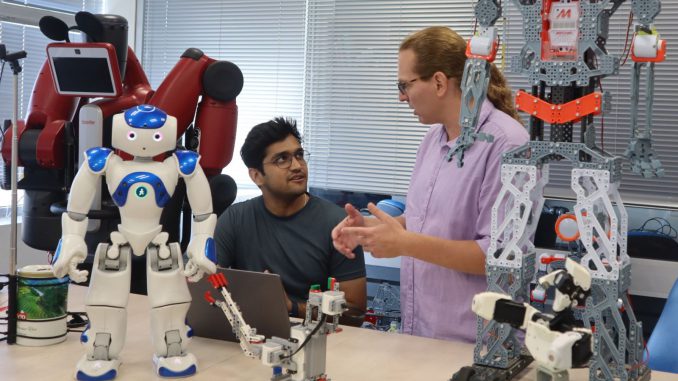
By Jon Schiller
Several new laboratories are set to join forces with Israeli industry to advance groundbreaking research with potential applicability within three to seven years.
Tel Aviv University announced its intention to launch the Center for Innovation Laboratories before the 2021-2022 academic year.
Six laboratories, along with additional labs under construction, will try to provide a comprehensive scientific and innovative solution for specific needs conveyed by industrial and public bodies such as hospitals and schools.
For example, if the health industry expresses a need for unique diagnostic photographic technology, the researchers will try to provide an appropriate solution within a relatively short time frame.
The application-focused model is different from traditional basic research, which usually begins with the interests of the researcher.
“Tel Aviv University’s vision includes internationality, multidisciplinary and connections with knowledge-intensive industry and society,” said TAU president, professor Ariel Porta.
“The Center for Innovation Laboratories will integrate all of the components of this vision. As the largest and most diverse research university in Israel, we strive for the groundbreaking research innovation of the university’s researchers to benefit society in Israel and around the world.”
The new center will bring together experts from a wide range of disciplines, who will enrich various dimensions of research from different perspectives, including design, branding and accessibility to diverse audiences.
The industrial sector will take on a significant part of the funding of the research in a format that involves “club membership” conferring product development rights.
“This unique center redefines the interface between academia and industry,” said its director, professor David Mendlovic.
“The academic freedom to create and innovate on the one hand, and the desire for research that has practical applicability on the other, has led to a center that brings together innovation labs dealing with a variety of topics and actors such as industry, hospitals, and government agencies.”
Other areas of innovation
The Startup Nation is known for numerous other technological innovations, including: The Kitchen, the world’s first food-tech hub. It was launched in 2015 by The Strauss Group, one of Israel’s largest food producers, as part of the Israeli Innovation Authority’s Technological Incubators Program.
Today, The Kitchen has 19 portfolio companies cooking up innovations to feed the world more efficiently, sustainably and securely.
But The Kitchen is no longer alone: Governmental, corporate and academic food-tech labs and incubators are opening across Israel. The number of food-tech startups has risen to approximately 400.
Another recent innovation has involved using ice to store solar energy. Nostromo Energy’s modular IceBrick, installed on the roof, basement or walls of commercial and industrial buildings, stores energy in ice capsules and directs it to commercial space cooling, which accounts for up to 45 percent of global global power demand during peak hours.
Produced in association with Israel21C.
Recommended from our partners
The post Innovation Laboratories Aim To Provide Scientific Solutions For Industry appeared first on Zenger News.
